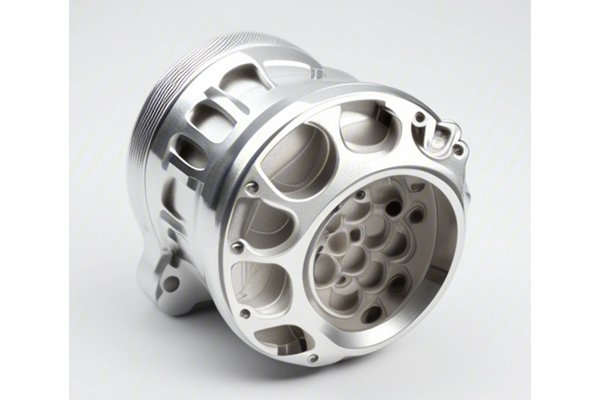Did you know that the global CNC machining market is expected to reach over $100 billion by 2027, with an annual growth rate of approximately 6%? This growth reflects the increasing demand for precision engineering across multiple industries, including aerospace, automotive, medical, and electronics. As such, understanding how CNC (Computer Numerical Control) machining can enhance the quality of custom metal parts has become ever more crucial for businesses looking to maintain a competitive edge.
In this blog, we’ll delve into the mechanics of CNC machining, explore its benefits, discuss specific use cases, and provide actionable solutions to improve the quality of custom metal parts. Whether you’re a buyer, a manufacturer, or someone interested in the latest technological trends, this article will equip you with substantial insights into this game-changing process.
1.1 What is CNC Machining?
CNC machining is a manufacturing process that utilizes computer systems to control machine tools. This allows for high levels of precision and repeatability in producing parts from a wide range of materials, especially metals like aluminum, brass, titanium, and steel. CNC machining encompasses several processes, including milling, turning, boring, and drilling.
1.2 The Evolution of CNC Technology
CNC technology has evolved significantly over the decades, from early punched tape systems to complex CNC software and hardware. Today’s machines can perform intricate tasks with minimal human intervention, enhancing productivity and efficiency.
1.3 Key Benefits of CNC Machining
2.1 Why Quality Matters
Quality is paramount in custom metal parts, affecting lifespan, performance, and safety. In sectors like aerospace and automotive, even the smallest deviations can have catastrophic results. Thus, understanding the variables that affect quality will help buyers make informed decisions.
2.2 Common Quality Issues
3.1 Precision Engineering
CNC machines use advanced programming techniques to ensure that every part is manufactured according to exact specifications. Let’s look at several CNC capabilities that enhance the manufacturing process:
3.2 Advanced Software Solutions
Software plays an essential role in ensuring the quality of the final product. CAD (Computer-Aided Design) and CAM (Computer-Aided Manufacturing) systems allow for:
3.3 High-Quality Materials

Selecting the right material is critical for quality. CNC machining services can guide buyers in selecting the best metal for their needs, optimizing:
4.1 Quality Assurance Processes
To ensure that each part meets specifications, manufacturers employ several quality assurance methodologies:
4.2 Statistical Process Control (SPC)
SPC is a method of quality control that uses statistical methods to monitor and control the manufacturing process. By analyzing data from various points in production, manufacturers can identify trends and irregularities, enabling them to make necessary adjustments proactively.
5.1 Collaborate with Reputable Suppliers
Building a relationship with reputable CNC machining providers can significantly enhance the quality of custom parts. Look for:
5.2 Develop Clear Specifications
Provide precise and detailed specifications to suppliers, including tolerances, surface finishes, material types, and quantities. It’s essential to involve engineers in this process to ensure that every aspect of the design is considered.
5.3 Request Samples
Before committing to a large order, request prototypes or samples to evaluate the quality of work. This enables you to verify that the supplier understands your requirements and the manufacturing capabilities meet your standards.
6.1 Artificial Intelligence and Machine Learning
As technology advances, AI will play a more significant role in quality assurance. AI-driven analytics can predict potential failures before they occur, enabling manufacturers to take proactive measures to maintain quality.
6.2 Industry 4.0
The advent of the Industrial Internet of Things (IIoT) allows for real-time data sharing between machines, enabling manufacturers to achieve unparalleled precision and quality in CNC machining. Smart machines will be able to communicate with each other and automatically adjust processes for the best results.
In summary, CNC machining has revolutionized the manufacturing of custom metal parts by enhancing precision, repeatability, and overall quality. As buyers navigate this ever-evolving landscape, employing advanced techniques, precise specifications, and reputable suppliers will ensure that they receive high-quality parts tailored to their needs.
Periodically reviewing these processes, remaining informed about technological advancements, and innovating based on market demands will keep you ahead in your industry. Remember, the importance of quality in custom metal parts cannot be overstated; it is the cornerstone of safety, reliability, and competitive advantage.
By embracing the techniques and insights outlined in this blog, you’ll not only elevate your procurement strategy but also contribute to stronger, more efficient manufacturing ecosystems that benefit everyone involved. As the CNC machining industry grows and evolves, staying informed and adapting to changes will be key to success in your business endeavors.






